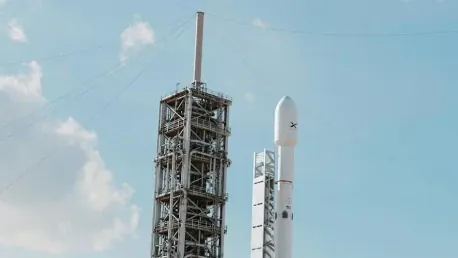The U.S. Environmental Protection Agency (EPA) has imposed a fine of $148,000 on Elon Musk’s SpaceX for a series of environmental violations at its Boca Chica site in South Texas, drawing attention to the ongoing debate over industrial activities and their ecological impact. This penalty comes as SpaceX seeks approval from the Federal Aviation Administration (FAA) for another test launch, but meetings have been postponed due to these violations.
The EPA’s fine targets SpaceX for spilling 36,000 gallons of liquid oxygen and for seven additional releases of industrial wastewater into nearby wetlands without the necessary permits. These incidents have sparked criticisms from local environmental groups who have long opposed SpaceX’s expansion in Boca Chica, citing the damage to the local ecosystem. Moreover, both the FAA and the Texas Commission on Environmental Quality have raised concerns about the environmental impact of increased launch activities in the region.
Adding to the environmental issues are alarming trends in heat-related deaths in Texas, which have been increasingly linked to climate change and reliance on fossil fuels. Since 1999, heat-related fatalities in Texas have risen by 117%, peaking in recent years with nearly 563 deaths recorded last year alone. This dramatic increase underscores the urgent need for public health measures and climate action to mitigate the effects of extreme heat.
Public health experts emphasize the importance of better data collection and more robust local measures to counter the impact of extreme heat. Texas A&M climate scientist Andrew Dessler and others argue that without comprehensive data and stronger health initiatives, the state will continue to face rising death tolls and broader public health challenges.
In the political realm, discussions extend to the potential impacts of dissolving key educational institutions, such as the U.S. Department of Education, as suggested by some conservative political plans, including those of former President Donald Trump. The proposed Project 2025 could significantly reshape educational policies, further reflecting the interplay between political decisions, public health, and environmental standards.
The escalating ecological and public health challenges illustrate a broader consensus on the necessity of stringent environmental regulations and enhanced public health initiatives. SpaceX’s recent violations highlight the critical need for corporate oversight and administrative diligence as they seek further test launches amid local resistance and broader ecological concerns.
This narrative encapsulates the interconnected nature of regulatory enforcement, climate impact, and public health. As industrial activities continue affecting the environment, urgent and comprehensive policy reforms are needed to address the escalating threats posed by climate change. Political decisions also play a pivotal role, potentially influencing public health, education, and environmental standards significantly.
In summary, the article underscores the urgent need for stringent enforcement of environmental regulations, robust public health measures, and comprehensive policy reforms. It is clear that corporate activities like those at SpaceX, coupled with climate change, continue to challenge ecological and public health objectives. Political strategies and decisions will profoundly impact these sectors, reinforcing the importance of informed and proactive governance.









